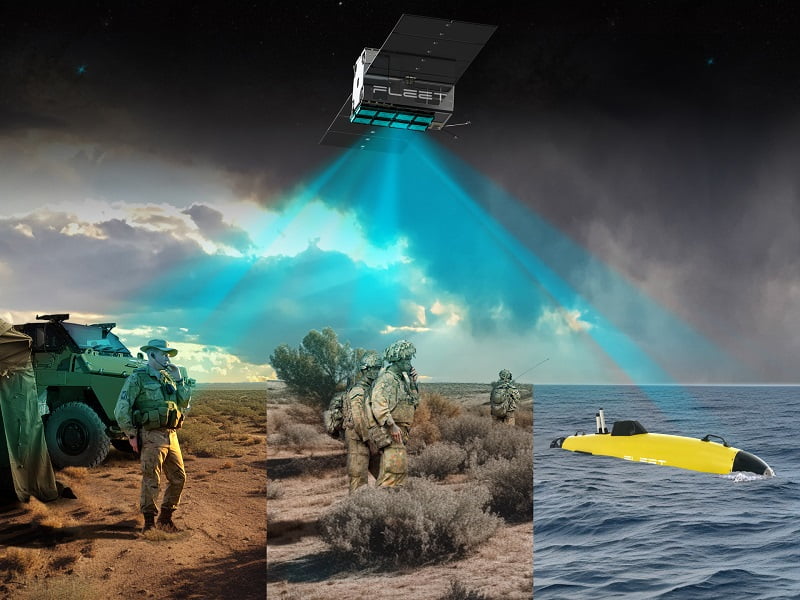Nanosatellite startup Fleet Space Technologies has struck a $6.4 million contract with Australia’s nascent Space Command defence agency to develop a low-Earth orbit satellite communications system.
The 16-month deal, which resulted from a limited tender, is the Adelaide-based space company’s first win with the Defence department and the wider federal government since it was founded in 2015.
Until now, the nanosatellites developed by Fleet Space have mainly been used in mining applications, with around 30 companies worldwide reportedly either using or preparing to use its technology.

The contract with Defence Space Command will see Fleet Space use its Centauri satellites to “develop and demonstrate a LEO satellite communications system focused on tactical communications and data transmission where connectivity is limited”.
The work is happening as part of ASCEND2LEO, an R&D program with the Defence Science and Technology Group, the University of South Australia, Rice Satcom and the SmartSat CRC that involves “taking advanced research and technologies to demonstrate LEO capabilities to the war fighter”.
Defence Space Command is a branch of the Royal Australian Air Force set up under the former Coalition government in March 2022 to secure Australia’s place in the cosmos and complement its existing maritime, land, air and cyber domains.
Around $7 billion is expected to be spent on space defence this decade, according to the 2020 Defence Strategic Update, although this could be revised later this month as part of the Defence Strategic Review.
A spokesperson for Defence told InnovationAus.com last month that the contract with Fleet Space is “an opportunity to further develop space technologies that will be applied to the development of future Defence satellite communications programs”.
Colonel Clifford White, Director Space Services at Defence Space Command, described the partnership as an “example of innovative ways to advance our capability and support the development of a sustainable national space enterprise”.
“Australia is fortunate to have a talented space industry with an inventive spirit,” he said, adding that the project will “bring new approaches to enhance satellite communication capabilities to meet Defence’s needs”.
SmartSat CRC chief executive Professor Andy Koronios said the “ambitious” ASCEND2LEO program would deliver the Defence Space Strategy objective that “Defence may benefit from repurposing civilian technology for military means, without having to invest in R&D or venture incubation”.
“SmartSat was able to work with Fleet to develop a proposal to do just this – repurpose technology being used for world leading mineral exploration, and technology SmartSat developed to build more resilient Search and Rescue infrastructure, into a demonstration of tactical voice communications,” Mr Koronios said.
“We’re excited to collaborate with Defence Space Command and our partners to deliver new capabilities from low Earth orbit,” Fleet Space chief exploration officer and co-founder Matt Pearson added.
“This is only the beginning, and we envision Australian satellites supporting national security across land, air, sea and space by connecting our people, our assets and by enabling radical ideas in autonomy and emerging technologies.”
Last month, Defence revealed Lockheed Martin as the preferred prime contractor for its $4 billion JP9102 Australian Defence Satellite Communication system – the country’s first “sovereign-controlled” military satellite communication constellation.







